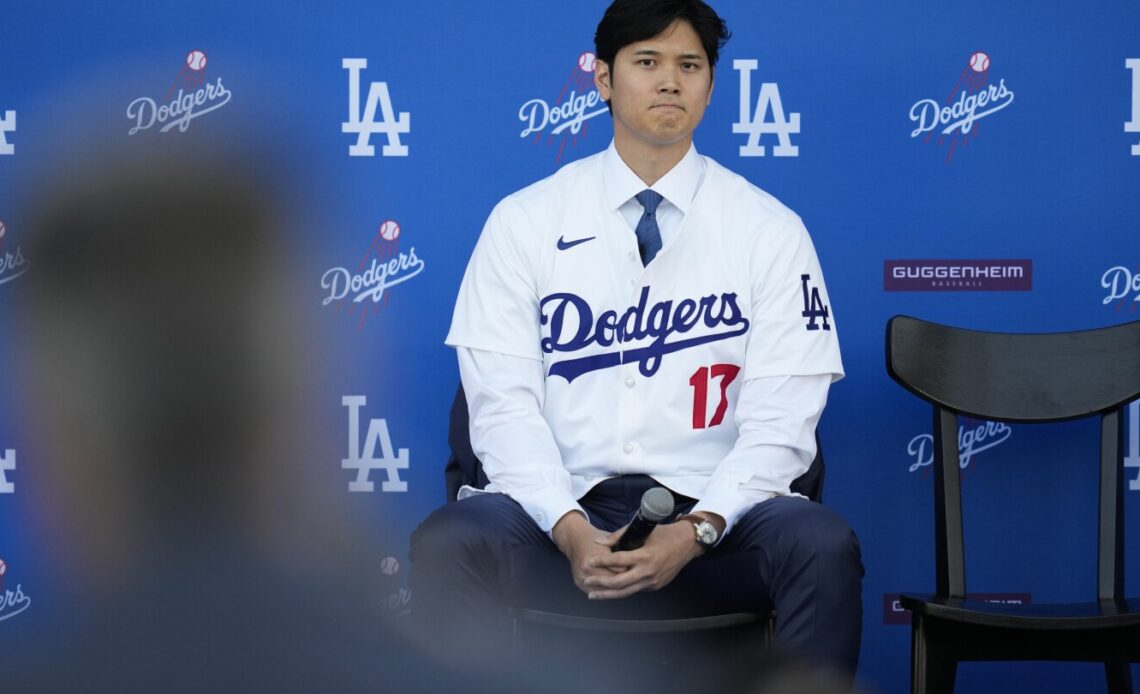SACRAMENTO, Calif. (AP) — If $700 million wasn’t enough, Shohei Ohtani’s record-setting contract with the Los Angeles Dodgers could also include a bonus: skipping most of California’s famously high income taxes.
Not even the mighty Dodgers have the power to exempt Ohtani from paying his taxes. But they and the player can control when Ohtani gets paid. The Dodgers will pay Ohtani $20 million over the next decade, when the baseball star will be hitting and, health permitting, pitching for the National League powerhouse.
It’s the decade after that when the Dodgers will really start to pay Ohtani — $68 million per year from 2034-43. Ohtani will turn 40 in 2034, an age when most Major League Baseball players have retired. By then, Ohtani could stop playing baseball and choose not to live in California, potentially avoiding for the bulk of his salary the state’s 13.3% income tax and 1.1% payroll tax for State Disability Insurance.
With 97% of Ohtani’s Dodgers income deferred, it means California — where there is an estimated $68 billion budget deficit this year — will have to wait at least a decade before it can collect taxes on the bulk of his salary, if it can collect at all. California could collect taxes from Ohtani’s significant endorsement deals, assuming Ohtani is a California resident.
It’s impossible to know for sure how much state taxes Ohtani will pay. California law doesn’t let state officials provide information about a single taxpayer. The California Franchise Tax Board — the state agency that collects income taxes — says the amount of income subject to tax payments and the timing of those payments vary depending on the technical details of the contract, which are not publicly available.
But the details of Ohtani’s contract that are publicly known appear to fit nicely within the confines of a federal law that specifically bans states from taxing the retirement incomes of former residents, said Kirk Stark, a law professor at UCLA who specializes in tax law and co-authored a textbook on state and local taxes.
That law, Stark says, applies to deferred compensation arrangements as long as the income is received in substantially equal payments over a period of not less than 10 years. That scenario seems to apply to Ohtani’s contract, meaning he could potentially avoid paying California income taxes were he to live outside of the state once his playing career…

